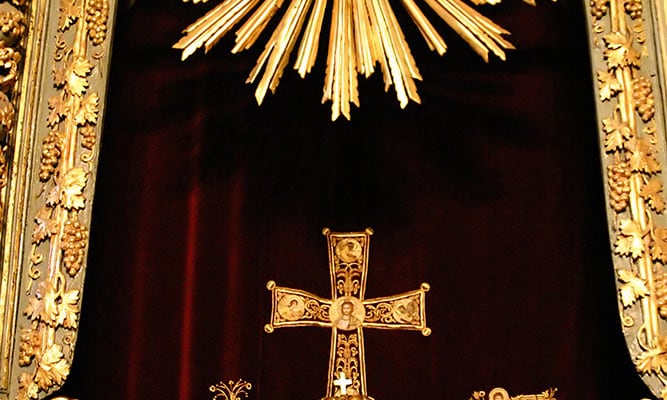Le Bulletin de correspondance hellénique moderne et contemporain, issue 2, 2020
Click here to access the article.
“This article explores the notions of tradition and innovation as perceived and discursively employed by the Stanbulite Greek Orthodox concerning their ritual music in the second half of the nineteenth century. At a more general level, focusing on the sacred music of the Greek Orthodox Church in the late nineteenth century, it argues for a blurred boundary between tradition and invention (or innovation). By investigating the discourses of tradition used by the spiritual leaders, musicians, and European musical experts, it tackles the manifestations of ethnic and religious identity in the largest non-Muslim minority group within a multi-ethnic and multi-religious empire. Some of the major issues which concerned the patriarchs, cantors, and the participants of the musical commissions in Istanbul were the amelioration of choral singing, the notation of ecclesiastical chants, and the problems of intonation. This article explores the reformist intentions and acts of the Stanbulite cantors, scholars, and patriarchs, in view of their assertions of their cultural identity, the discourses of the West that they subscribed to, and their individual responses to certain Western European scholars’ convictions on the origins and continuity of the Greek musical tradition. Furthermore, by providing examples from the long history of the Eastern Orthodox Church, the article contributes to our understanding of the processes of the making of myths and traditions in contemporary Greek culture.”
Politiques d’héritage culturel, Grecs Stambouliotes et le Patriarcat de Constantinople à la fin du xixe s.
“Cet article explore les notions de tradition et d’innovation comme elles étaient perçues et employées dans le discours des Grecs orthodoxes d’Istanbul à propos de leur musique rituelle dans la deuxième moitié du xixe s. Sur un plan plus général, en se focalisant sur la musique sacrée de l’Église orthodoxe grecque à la fin du xixe s., l’article met en avant les frontières brouillées ente tradition et invention (ou innovation). En explorant les discours sur la tradition prononcés par les chefs spirituels, de musiciens et de musicologues européens, il aborde les manifestations d’identités ethniques et religieuses chez le groupe minoritaire non-musulman le plus nombreux dans un empire multiethnique et multiconfessionnel. Parmi les sujets les plus importants qui ont préoccupé les patriarches, les chantres et les participants aux commandes musicales à Istanbul figurent l’amélioration du chant choral, la notation des chants ecclésiastiques et les problèmes d’intonation. Cet article explore les intentions et les actes réformistes des chantres, des érudits et des patriarches stambouliotes, au vu des assertions de leur identité culturelle, des discours sur l’Occident auxquels ils souscrivaient, ainsi que de leurs réponses individuelles à certaines convictions d’érudits occidentaux sur les origines et la continuité de la tradition musicale grecque. En outre, en offrant des exemples tirés de la longue histoire de la musique de l’Église orthodoxe de l’Est, l’article contribue à la compréhension des processus de construction des mythes et des traditions dans la culture grecque contemporaine.”
Share the post « “Tradition: Politics of cultural heritage, Stanbulite Greeks, and the Patriarchate of Constantinople in the late nineteenth century” by Merih Erol »

